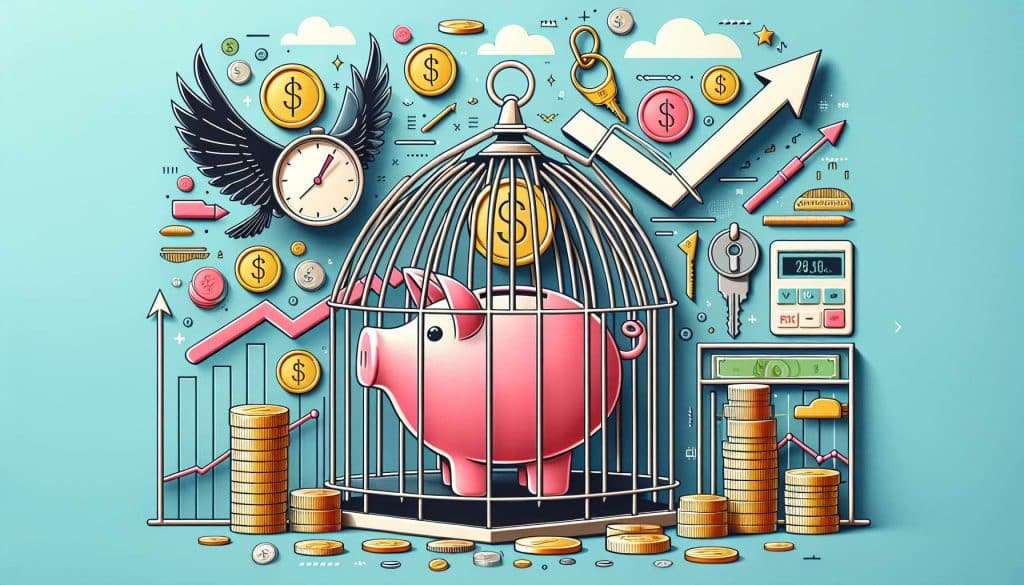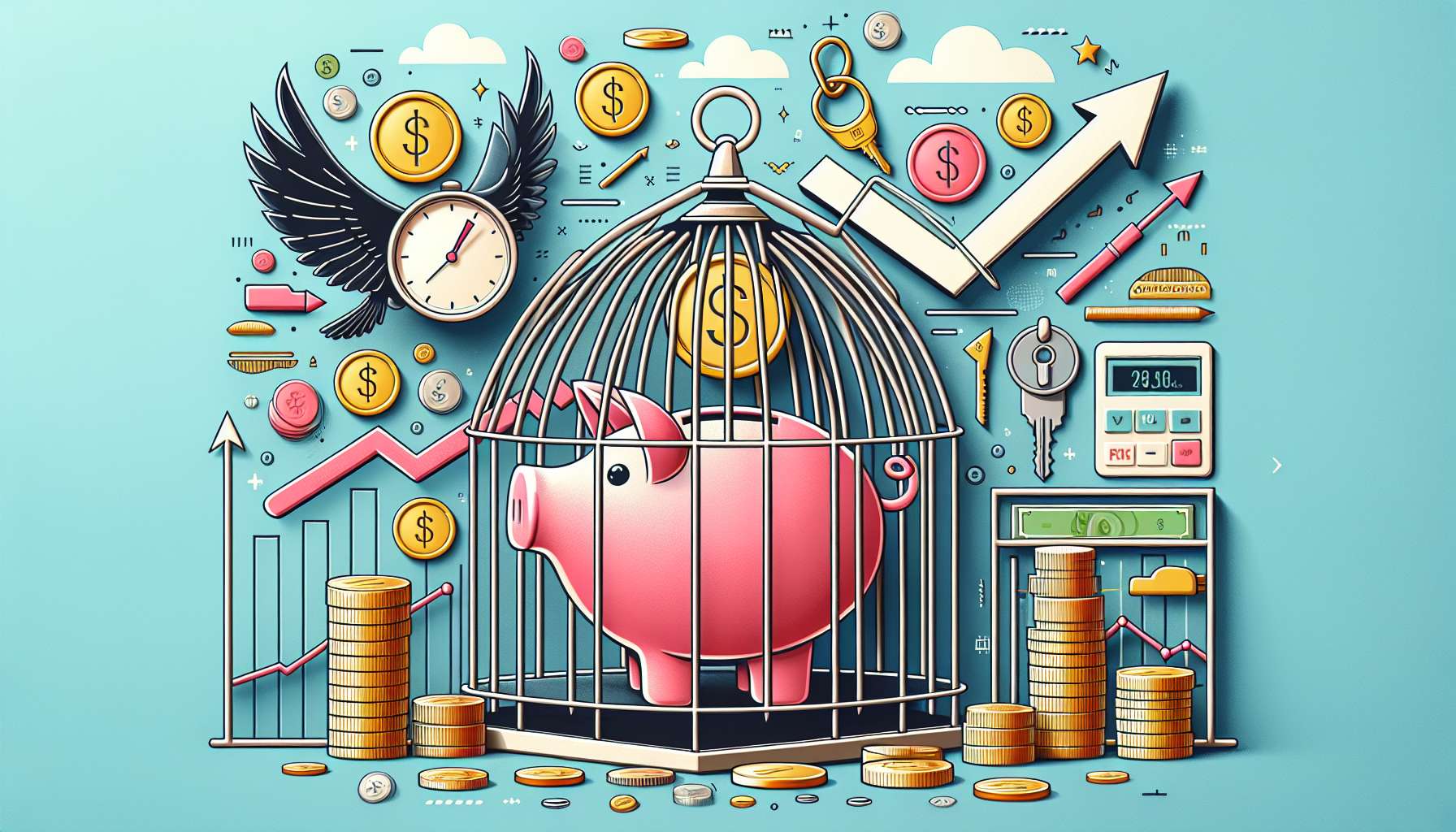Master Your Money: Attain Financial Freedom with Personal Budgeting

Anúncios

**Mastering Personal Budgeting: Your Guide to Financial Independence**
In today’s ever-evolving financial landscape, personal budgeting is more important than ever. As economies surge and recede unpredictably, individuals face financial challenges that demand strategic planning. A well-devised budget provides clarity and control over one’s finances, setting the stage for achieving financial security. Personal budgeting empowers individuals, enabling them to make more informed monetary decisions and paving the way towards financial independence.
A budget is more than just a spending limit; it’s a pathway to liberation from monetary constraints. Understanding and implementing effective personal budgeting strategies can significantly impact both short and long-term financial health. With the right framework, individuals can minimize unnecessary expenses and channel their finances towards substantial savings. This article will delve into the fundamentals of personal budgeting, equipping readers with knowledge to manage their money effectively.
Anúncios
For those seeking financial freedom, embracing personal budgeting is non-negotiable. Amidst the pressure of daily financial demands, devising a plan for spending, saving, and investing is essential. This comprehensive guide walks through the essentials of personal finance management, ensuring that financial goals are not just dreams, but tangible plans. By adhering to fundamental budgeting principles, anyone can navigate the road to financial freedom with confidence and optimism.
Understanding Personal Budgeting: A Comprehensive Overview
Personal budgeting is an intentional plan for your financial resources. It’s about recognizing your income and streamlining your expenditures to ensure alignment with your financial goals. An effective budget prioritizes important expenses and helps manage your financial priorities. Individuals who budget effectively see a meaningful reduction in economic stress and enjoy enhanced financial security, knowing they are working towards future goals, like debt elimination or retirement savings.
The foundational step for successful budgeting involves evaluating your financial standing. Begin by itemizing every source of income, including salary, freelance, or passive earnings. Identify monthly expenses—both fixed, like housing costs, and variable, such as entertainment. Aligning income with expenditure lays the groundwork for detailed financial planning. This clarity transforms your financial chaos into manageable sections, allowing purposeful spending and saving.
Anúncios
Setting achievable financial goals is integral to personal budgeting. Define clear short and long-term targets, whether it’s debt repayment, home purchase, or investment growth. Having well-outlined goals maintains focus and motivation. Critical to goal setting is aligning them with the SMART framework—specific, measurable, achievable, relevant, and time-bound. This structured approach ensures goals are not just set, but met, cultivating a forward-looking financial journey.
Categorizing expenses enhances insight into spending patterns. Distinguish between essentials and non-essentials to facilitate conscious spending. Consider applications or software that assist in this categorization, highlighting areas needing financial restraint. The discipline drawn from category awareness can be crucial for recognizing spending inefficiencies, articulating clearer financial directions, and adhering to committed budgeting practices.
Once expense categories are defined, allocate your income methodically. Essentials take precedence, while discretionary spending follows. Incorporate savings and emergency funds into your budget. Adopting the 50/30/20 rule—which advocates directing 50% of income to needs, 30% to wants, and 20% to savings and debt—ensures a balanced and comprehensive financial plan. Flexibility within allocation maintains financial harmony even if unexpected expenses arise, sustaining financial stability.
Your budget isn’t static; it necessitates regular updates. Monitor spending habits to ensure alignment with the budget. Adjustments, whether cutting back or redistributing funds, are often necessary to remain on target. Being adaptable with your budget prevents financial stagnation and fosters a dynamic approach to personal budgeting, allowing you to weather financial storms with foresight and adaptability.
Characteristics of Effective Personal Budgeting
- Detailed tracking of all financial inputs and outputs.
- Regular reassessment to incorporate financial changes.
- Prioritization of financial goals aligned with the SMART criteria.
- Categorization of expenses for enhanced financial insight.
Benefits of Mastering Personal Budgeting
Personal budgeting offers a wealth of advantages, leading to improved financial well-being. A primary benefit is gaining control over one’s finances, as understanding income distribution significantly reduces financial stress. Budgeting aids in strategic financial decision-making and stewardship, enabling prioritization of vital needs over fleeting wants. Mastery over budgeting acts as a catalyst for financial resilience and preparedness in unforeseen economic circumstances.
A direct outcome of effective budgeting is the increase in savings potential. By curbing unnecessary expenditures, individuals can redirect funds to savings and investments, improving financial security. Building a formidable financial cushion empowers individuals to handle sudden expenses without jeopardizing their economic stability. Moreover, consistent savings contribute to achieving broader financial aspirations, from property investments to retirement planning.
Improved financial habits stem from careful scrutiny of spending patterns encouraged by budgeting. It disciplines individuals to evaluate the necessity of expenditures and the long-term implications of impulsive financial choices. With consistent budgeting practice, financial prudence becomes second nature, resulting in more sustainable monetary practices. Enhanced awareness fosters deeper financial understanding, curbing impulsive buying behaviors significantly.
Technology significantly aids in facilitating personal budgeting. Modern tools and apps offer precision and ease, streamlining the tracking and management of finances. With platforms like Mint or YNAB, real-time expense tracking, automatic expense categorization, and goal monitoring become effortless, empowering individuals to focus on their financial priorities swiftly and efficiently. Digital convenience strengthens fiscal accountability, making successful budgeting attainable for everyone.
- Clarifies financial priorities and goals.
- Enhances saving and investment opportunities.
- Cultivates more mindful and disciplined spending habits.
- Leverages technology for streamlined financial management.
The psychological benefits of budgeting shouldn’t be underestimated. Shifting perspectives about budgeting—from restrictive to empowering—enables a more productive financial journey. It encourages a proactive approach rather than reactive crisis management. Celebrating small financial victories and maintaining patience fortifies confidence, gradually transforming budget skeptics into budget enthusiasts, fueling ongoing dedication to achieving financial goals.
Ultimately, mastering the art of personal budgeting is a real investment in long-term financial health and peace. By embracing this practice, individuals position themselves to face future financial challenges with competence and optimism. Establishing a personal budget that adapts over time ensures a sustainable path towards financial freedom. Personal budgeting is more than a financial protocol—it’s a lifestyle choice with profound implications for achieving a secure, prosperous future.





